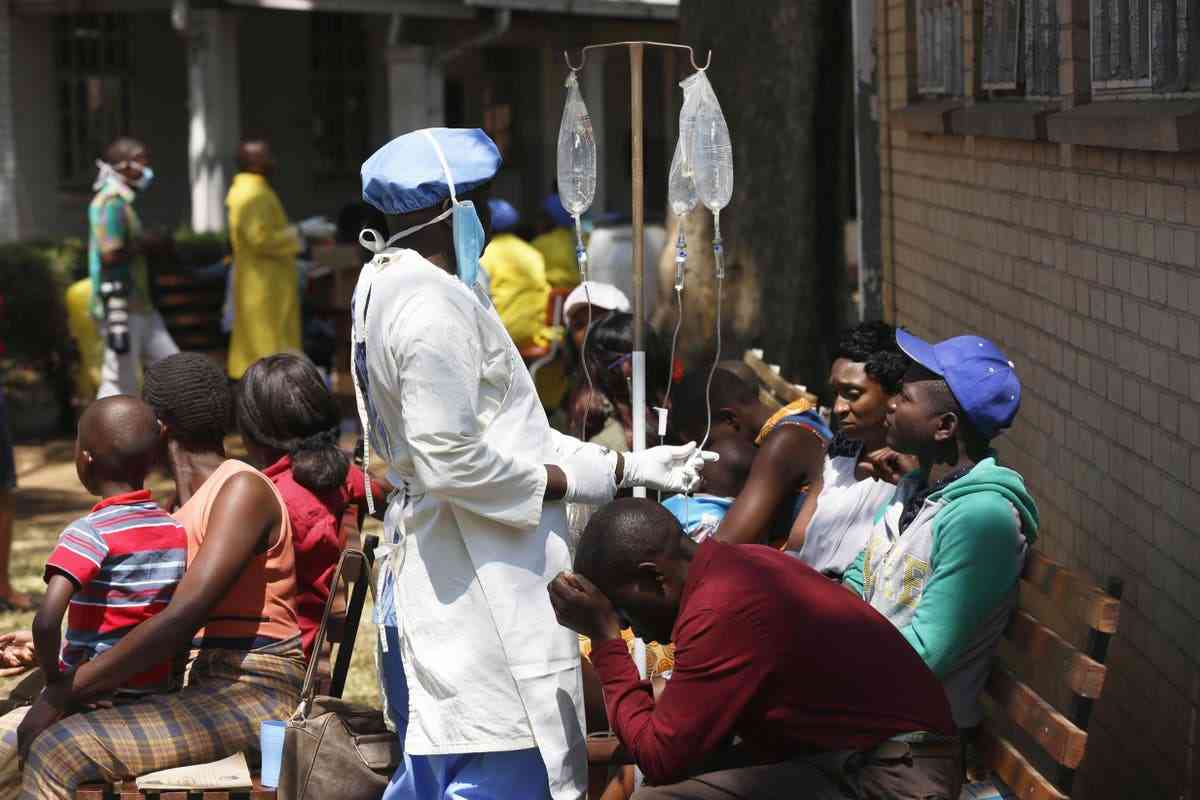
A top Harare City Council official has warned that the ongoing cholera outbreak will turn into a disaster if adequate measures are not taken to stop the spread of the disease.
Prosper Chonzi, the City of Harare director health services, urged residents to exercise hygiene.
“It is already an outbreak and we are worried that if people continue being careless it will turn into a disaster very soon,” Chonzi said.
“People should avoid big gatherings, eating food from random places, and bad hygiene practices.”
As of Friday, the country had recorded 4 672 suspected cholera cases, 30 laboratory confirmed deaths and 100 suspected cholera deaths since last month.
The outbreak has now spread to more than the 17 traditional cholera hotspot districts of Buhera, Chegutu, Chikomba, Chimanimani, Chipinge, Chitungwiza, Chiredzi, Harare, Gokwe North, Marondera, Mazowe, Shamva, Mutare, Murehwa, Mwenezi, Seke and Wedza.
Cholera, which is becoming endemic, re-emerged from Buhera in recent weeks and has spread across the country with daily average cases nearing 100.
Community Working Group on Health executive director Itai Rusike said cholera was a huge threat to public health.
- Harare cancels Pomona waste deal
- Devolution gains remain a mirage
- Harare cancels Pomona waste deal
- Pomona saga: Harare handed shock US$750k ‘garbage’ bill
Keep Reading
Rusike said weaknesses in water and sanitation infrastructure and services, high risk hygiene and social practices, gaps in surveillance and healthcare systems were fueling the spread of cholera.
“Underground water may be contaminated by leakages from the dilapidated sewerage system, unfortunately there is generally low practice of the treatment of drinking water from boreholes or the protected and unprotected dug wells,” he said.
“Other risk factors for cholera include certain religious groups with low health seeking behaviors and deliberate efforts should be made to engage leaders of the religious groups in order to encourage their membership to seek treatment whenever they suspect cholera infection.”
Rusike said certain traditional practices such as washing dead bodies and hand shakes at funerals should be discouraged when there is a cholera outbreak.
“Oral cholera vaccine should be deployed to the identified hot spots and the government should seriously consider nationwide cholera vaccination and this should be combined with sustainable long-term water sanitation and hygiene interventions to prevent recurrence of cholera outbreaks,” he said, adding that there was need for more cholera awareness campaigns.
Medical and Dental Private Practitioners of Zimbabwe Association president Johannes Marisa said there was a possibility of cholera becoming endemic.
“We need to adapt to the new order of these communicable diseases being amongst us for some time,” Marisa said.
“It is up to authorities to make sure we have good sanitation and clean water supplies and that our water infrastructure is up to standard with all the necessary chemicals needed in the purification of water.”
Last week, government banned gatherings in Cholera outbreak hotspots as it seeks to arrest the spread of the waterborne disease.
The 2009 cholera outbreak, which started in Harare, was the deadliest as it killed more than 4 000 people and left over 100 000 others infected.










